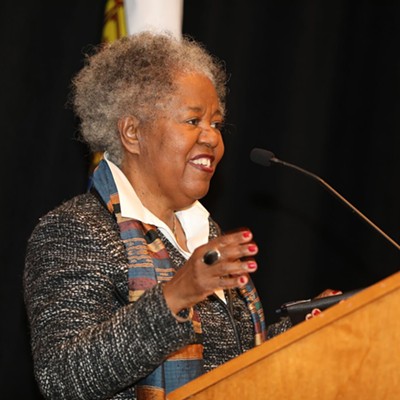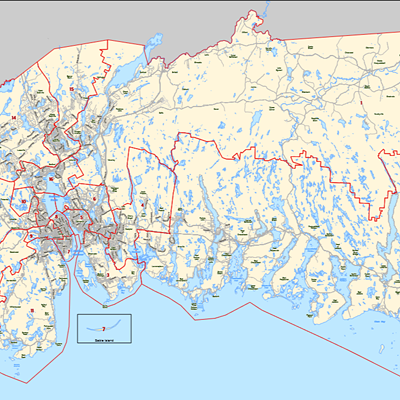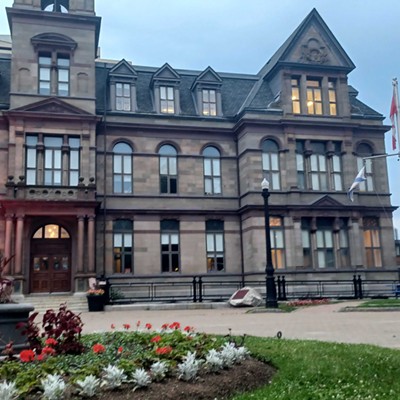As of the city council meeting on July 9, Halifax’s Regional Watersheds Advisory Board (RWAB) has been canned.
The volunteer board had been mandated to support the environment subcommittee with advice, though according to some members of the board, communication with this subcommittee didn’t exist.
These members—Céofride Gaudet, Sue Belford, and Martin Willison—announced on Thursday they will be starting an expert group on water advisory titled A Thousand Lakes, named after the thousand or so lakes within HRM.
In a press release circulated on July 11, the group shared their hopes to work with municipal, provincial, and federal governments and independent experts to “address the gaps in Nova Scotia’s freshwater protection system,” as well as raise awareness in decision-makers about issues facing HRM’s lakes.
“One of the key aspects that A Thousand Lakes will be looking at is how well the current system of watershed protection is being implemented,” said Belford, a scientist and stormwater infrastructure designer, quoted in the press release. “What are the existing policies and rules? Are they being followed? How well are they working? The public and decision-makers deserve to know.”
The end of the RWAB
Along with a lack of communication between the RWAB and the environment subcommittee, the press release from A Thousand Lakes states prohibitions on certain items limiting their board from being as effective as possible.
They couldn’t talk about proposed development agreements or policies governing those agreements. Also off-limits was anything staff was working on that had yet to be presented before council. The press release states that “these and several other constraints ensured that nothing of any significance could ever be discussed at RWAB.”
The city’s reason for discarding the board? They now have the capacity to negotiate agreements and review proposals without the help of a board. This capacity had once been very limited, said A Thousand Lakes.
Staff proposed the RWAB be eliminated in 2019, but council shot it down. In A Thousand Lakes words, “Staff then had no choice but to continue to support a board that, from their perspective, was not needed or wanted, and had by now become a net drain on their resources.”
In 2023, HRM clerk Iain MacLean was cleaning up around the volunteer boards and committees, seeing what resources were required where and if they were worth the cost. One of his recommendations was to dissolve the RWAB.
“It is true that staff capacity has significantly improved over the past several decades. However, that does not mean that the policy process could not benefit from advice from independent volunteer experts,” reads part of the press release from A Thousand Lakes. “The key word is independent.”
They go on to say although civil servants are “honest” and “hardworking”, they also face pressure from senior management, leading to some concerns being downplayed. A Thousand Lakes says the same of consulting firms, who rely on repeat business to survive and thus face pressure to please their clients.
“By contrast, an independent expert committee faces no obstacles or disincentives to stating facts and revealing choices that may be highly disconcerting to decision-makers,” reads the release.
No time to waste
According to A Thousand Lakes, it’s not the time for sugarcoating. They mention Lakes Banook and Micmac as two that are currently facing pollution from phosphorus and more, which may soon render them unusable for recreation.
There are two choices: to go with what A Thousand Lakes calls “expensive and possibly controversial modifications” to how stormwater enters the lake, or to move recreational activities to another lake entirely.
“The impact of that choice on Dartmouth would be huge given the importance of Lake Banook to Dartmouth’s history and culture,” reads the release. “If the choice is to allow the lake to continue to deteriorate, then the public swimming areas could be replaced by a public swimming pool—also an expensive choice.”
A Thousand Lakes says there are several lakes similarly threatened in HRM, and it requires independent oversight to effectively mitigate concerns.
A study conducted by Dalhousie University researchers in 2023 found more than half of the lakes have seen increases of 50 per cent or over in chloride and phosphorus, amongst other metals, over the last 40 years. Some of this comes as a result of urban development, while hydrology, climate, and watershed characteristics play a part, as well.
“We believe strongly that independent advice from top water and environmental scientists is essential to good policy development and effective implementation of measures to protect our watersheds,” said Gaudet. “That is why we are creating A Thousand Lakes.”

















